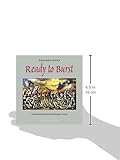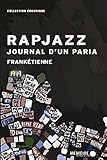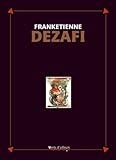Preface
Frankétienne (1936-) is considered one of the most important figures in twentieth and twenty-first century Haitian literature and the arts. He is widely known as the author of Dezafi (1975), the first novel ever written in Haitian Creole, and has long enjoyed immense popularity both in Haiti and among members of the Haitian diaspora. An accomplished writer and painter, he is also a mathematician, activist, and intellectual. He was born Franck Étienne on 12 April, 1936 in the Artibonite region of Haiti.
As a young poet in the early 1960s, he frequented a literary salon formed by a group of politically-minded poets known as Haïti Littéraire. Though not an official member of the collective, he was deeply influenced by its members Davertige, Serge Legagneur, Roland Morrisseau, Anthony Phelps, and René Philoctète, all of whom ultimately were driven into exile from François Duvalier’s Haiti.
Frankétienne sacrificed the international acclaim enjoyed by the writers and intellectuals who fled Haiti for lives in exile and used his insularity as an opportunity for creative liberation. Along with writer-intellectuals Jean-Claude Fignolé and René Philoctète, Frankétienne developed the philosophical and aesthetic concept of Spiralism in 1965. Radically subversive on both a formal and a thematic level, Spiralism challenges existing Franco-Caribbean conventions. The aesthetic is characterized by a deep commitment to the exploration of Haiti’s landscape and its folk culture, and it proposes dramatic changes to the way in which the novelist represents at once the stagnant, the tragic, and the magical aspects of Haitian reality.
Frankétienne’s work taps the enormous cultural wealth found in the collective mythology the Haitian village, in Vodou sensibility, and in the vivid imagery of Creole proverbs. He conceives of Spiralism as an extension of the Caribbean oral tradition, a tradition in which stories are relayed as cumulative and cyclical narratives, temporally untethered and achronological. His conception of the spiral connects, moreover, with the most universal dimensions of the physical world, inasmuch as the notion of the spiral integrally reflects the dynamic by which organisms and living systems grow and develop.
Though he has only been recognized internationally after the fall of Duvalier’s regime, Frankétienne received multiple prominent honors in the Caribbean region and beyond, beginning in the early years of the twenty-first century. He received the Prix Carbet de la Caraïbe in 2002 for his work H’Éros chimères and the Prix Prince Claus (Netherlands) for the entirety of his artistic corpus in 2006. He was named an Artist for Peace by UNESCO in 2006, shortlisted for the Nobel Prize in 2009, and awarded the prestigious title of Commandeur dans l’Ordre des Arts et des Lettres de la France in 2010.
First published in 1968, Ready to Burst is Frankétienne’s first work to be translated into English. The novel follows the stories of two friends Raynand and Paulin—one a listless youth, one a Spiralist author like Frankétienne himself—through a society of artistic repression and political terror. Raynand’s relationship with Paulin is perpetually in question: is he real or is he the product of the author’s unraveling novel, the Spiralist method spilling beyond the pages? The narrative uncovers the absurdity of François Duvalier’s dictatorship by moving seamlessly between Paulin’s and Raynand’s experiences as two components of the same stunted psyche. Published by Archipelago Books this month, Ready to Burst is is “a vivid exploration of love, hope, and the delicate membrane between reality and dream.”
-Gregory Veitch
Ready to Burst
(translated by Kaiama L. Glover)
More effective at setting each twig aquiver in the passing of waves than a pebble dropped into a pool of water, Spiralism defines life at the level of relations (colors, odors, sounds, signs, words) and historical connections (positionings in space and time). Not in a closed circuit, but tracing the path of a spiral. So rich that each new curve, wider and higher than the one before, expands the arc of one’s vision.
In perfect harmony with the whirlwind of the cosmos, the world of speed in which we evolve, from the greatest of human adventures to struggles for liberation, Spiralism aligns perfectly – in breadth and depth – with an atmosphere of explosive vertigo; it follows the movement that is at the very heart of all living things. It is a shattering of space. An exploding of time.
Re-creating wholes from mere details and secondary materials, the practice of Spiralism reconciles Art and Life through literature, and nec- essarily breaks with the hypocrisy of the Word. Re-cognition. Totality.
In this sense, as a means of expression – efficient, par excellence – Spiralism uses the Complete Genre, in which novelistic description, poetic breath, theatrical effect, narratives, stories, autobiographical sketches, and fiction all coexist harmoniously…
***
Every day, I employ the dialect of untamed hurricanes. I speak the mad- ness of opposing winds.
Every evening, I use the patois of furious rains. I speak the rage of over- flowing waters.
Every night, I speak to the islands of the Caribbean in the language of hysterical storms. I speak the madness of the sea in heat.
Dialect of hurricanes. Patois of rains. Language of storms. Unfolding of life in a spiral.
In its essence, life is tension. Toward something. Toward someone. Toward oneself. Toward the point of maturation where the ancient and the new unravel. Death and birth. And every being finds itself – in part – in pursuit of its double. A pursuit that might even seem to bear the intensity of need, of desire, of infinite quest.
Dogs pass by (I’ve always been obsessed with stray dogs). They yap at the silhouette of the woman I’ve been chasing. At the image of the man I’ve been seeking out. At my double. At the murmurings of fleeting voices. For so many years now. It feels like thirty centuries.
The woman has left. Without fanfare. Left my heart out of tune. The man never held out his hand to me. My double is always just a step ahead of me. And the unhinged throats of nocturnal dogs let loose terrifying howls, making the sound of a broken accordion.
It is then that I become a tempest of words, bursting open the hypocrisy of clouds and the deceitfulness of silence. Rivers. Storms. Flashes of light- ning. Mountains. Trees. Lights. Rains. Untamed oceans. Take me away in the frenzied marrow of your joints. Take me away! It would take just a hint of clarity for me to be born with nine lives. For me to accept life. Tension. The inexorable law of maturation. Osmosis and symbiosis. Take me away! It would take just the sound of a footstep, a glance, a tender voice, for me to live happily in the hope that Man is capable of awakening. Take me away! For it would take so little for me to speak of the sap that circulates in the marrow of cosmic joints.
Dialect of hurricanes. Patois of rains. Language of storms. I speak the unfolding of life in a spiral.
***
In wanting so desperately to speak, I’ve become no more than a screaming mouth. I no longer worry about what I write. I simply write. Because I must. Because I’m suffocating. I write anything. Any way. People can call it what they want: novel, essay, poem, autobiography, testimony, narrative, memory exercise, or nothing at all. I don’t even know, myself. Yet what I write feels perfectly familiar to me. No one can say much more than what he has lived.
I’m suffocating. I write whatever crosses my mind. The important thing for me is the exorcism. The liberation of something. Of someone. Of myself perhaps. Deliverance. Catharsis. I’m suffocating. I can see no window in this cellar. And I push against the walls of my asphyxiation with the battering ram of words. If, after all this, the walls still don't come down, surely a passerby will hear the anarchic rush of my language, or the savage SOS of my death throes. I have done enough thinking. People think too much around here. Or maybe no one thinks at all. I’m tired. Now I knock on closed doors. I paw at the ground. I shout. I call out. I scream. Will my cries for help manage to move anyone? To reach some sympathetic target? I don’t know. But unhappiness, misery, despair, rage, rivers, storms, blood, fire, seas, hurricanes, my country, trees, mountains, my people, women, children, old men, all men, all things, and all beings swell in my voice, to the point where, should I fail, I’ll have been truly alone. Terrifyingly alone. Horribly alone.
I accuse, in advance, the Pharisians of in vitro culture.
Lazy philosophers! Rid yourselves of the bacilli of pure intellect. Explain to me how it is that people all over the world go thirsty. That malnourished peasants feed themselves rock porridge. That children die from fever. That my friend is gone, lost in the American army’s invasion of Vietnam. Explain to me that woman who left and never came back. The Third World bullied, ridiculed, despised. The threat of Imperial Powers. The blindness of people who don’t know how to decipher the graffiti of time’s passing. The illiterate pride of dictators who stomp on the dreams of their people. The shuddering of death. The tremors of life. The sadness of some. The joy of others. The enigma of love. My beating heart. Explain all that to me. I’ll always have the patience to listen and to hear – as long as, at the end of it all, there is action.
In the meantime, I speak with the voice of Raynand, with the voice of Paulin, with my own voice. Raynand and Paulin are one and the same character. I am their voice – at times weak, at times strong, but always there. Always present. The voice of the Third World torn apart. The voice suffocated beneath giant shadows. Raynand, tired, tries to find himself in Paulin, an image of the one who fights to transform repugnant realities. And in the interval, one voice remains audible: Raynand’s, Paulin’s, my own. For myself, I don’t know anything about this life that sweeps me up in a set of mirages and enduring utopias.
***
Eleven hours and thirty minutes of night and thick shadows. Raynand has been walking for hours. He’s become a pair of legs that walk. Between Presbytère and the cathedral, the large bulb, hanging from the cylindrical streetlamp, is no longer lit.
Perhaps some of the filaments have broken, scorched by the intense electrical heat? Perhaps the eye of the pear-shaped bulb was shattered by a pretty little stone thrown by the delicate hand of some kid who, on the way to school, wanted to test his skill or prove his virtuosity?
Undoubtedly, the little round stone, washed by last night’s rain, had piqued the child’s curiosity. He’d stooped down. Picked it up. Thrown it in the direction of the bulb. Surprised. Astonished. Eager to tell his class- mates all about his exploit, his good aim.
Tired, heavy-headed, not really knowing where he’s going at this time of night, Raynand tells himself that he has always behaved like a child. Irresponsible. Lighthearted. Carefree. Twenty-eight years, and what had he really done? Almost nothing along the path of blind stones. Absolutely nothing in the intermingling of demented winds.
Without any specific objective, he wanders. Covered in sweat. Feeling in his bones the forceps of anxiety. Fever in his gut. Suddenly, his hairs stand on end. Who could be calling to Raynand in this humid night? His nerves, his senses warn him. What chattering birds scream in the night? What evil beasts flap their featherless wings in the corners of the invertebrate town?
Who is calling to Raynand in the tentacled darkness? Jungle of invisible arms. Sharp edges of flattened voices. Viscosity of hairy hands. Forest of vines and glutinous intestines. Piles of ripped-out fingernails. Emaciated faces. His nerves, his senses on high alert.
The call persists in the suffocating heat of the night. Overheating of his intestines. Bursting of his glands. The sky covers the town with a thick, mysterious form. Someone still calls out to Raynand. Could it be a pros- titute in the darkness? No . . . more like the sound of metal-tipped shoes. Frightened, Raynand turns around. He looks around. Turns in circles around himself. Can’t make anything out. Can’t see anything anymore. He walks a little faster. Who would want to interrupt his peaceful stroll? Someone follows more and more closely on his heels. He crosses Alex-andre Pétion Place, just in front of the cathedral. Then, unable to hold back any longer, he takes off as fast as he can toward Bonne-Foi Street. He charges toward Jean-Jacques Dessalines Boulevard, where he hopes to come across some insomniac night owls.
Should he scream? Call for help? His mouth full of saliva. His tongue heavy . . . The breath and the spittle of his pursuers hot on his neck. Their foul breath, like burning vapor, smolders in his ears, dries out his skin. Smell of sulfur. Acidic little bites. Their forked claws are already tearing at his back.
If only he can reach Saint Joseph’s Gate in time. There’ll be people there. Help. Oh swift feet of my turbulent childhood! Have I ever eaten anything without giving you the biggest share? Have I ever drunk anything without offering you the most delicious portion? Nimble feet, languishing in the sweet, slow music of yesteryear, run faster! If anything happens to me, I shall blame you . . . My mother will be so sorry . . . If I die . . . And my beloved Solange? To never see her again?
It’s as if I’ve lost a piece of myself . . . Oh swift feet of my adolescence! Don’t even stop to catch your breath! Sports competitions. Long-distance races. Bitter races. The old high-school courtyard. Vincent Stadium. Sylvio Cator Stadium. Marathon. A rowdy crowd. Bravo for the champion – three laps in three minutes, ten seconds! Unbeatable record . . . Champ de Mars of my teenage years! Fields marked with quicklime. One hundred meters flat. Just let me keep my lead. Reach Saint Joseph’s Gate. Get there before them. Safe and sound . . . To once again see the sun shine on my country, on the hills, the rooftops, the streets . . .
Raynand feels them on his heels. Close. Far too close. Stumbling against a piece of broken concrete, he falls down at the intersection of Jean-Jacques Dessalines Boulevard and Fronts-Forts Street. Face-first. He keeps rolling. Then comes to a complete stop. On his back. His body, a blazing torch. His limbs, bursts of flames. His head on fire, a flaming mass filled with exploding shells. Eyes open, he looks at the corner of the street whizzing by like wagons jam-packed together, mounted on rails like a high-speed train, an express train to the sea. It’s funny . . . I’m taking the midnight express. It’s beautiful, this aboveground landscape of neon signs! The sky chopped into ragged pieces. Neon flowers light up . . . shut off . . . light up again...Blue...red...green...yellow. How quickly it goes by, this silent, freewheeling train to the dock! Blue-green . . . blue-red . . . deep yellow. Stereophonic surge in the middle of the night. The street lets out a long trumpet blast between the two rows of sealed-up houses. Brains crushed. Head aflame. Torchlight tattoo. Carnival. Mask. Fear . . . dead silence . . . Is this what it’s like to die?
***
Rapid fluttering of eyelids. Little by little, Raynand comes to. He vaguely recognizes the few objects that pass into his line of sight and lash at his memory.
A half dream in which, still blurry, the various things in his little room slowly begin to take shape. His vision floats in the oppressive space. A vast, viscous sea! Each wave turns up innumerable pink fish. Raynand’s room looks to him like an immense aquarium filled with blond octopuses wrapped around hundreds of swimming arms. But then in the next sec- ond, he sees himself on the edge of a lake. He’s skipping stones along the water’s surface; the waves send a circular message toward the sandy shore.
From his bed, Raynand looks around confusedly. Looks out from the depths. He tries to bring the contents of the modest room into focus. In the center, four mahogany chairs surrounding a gueridon. In the south corner, a shaky table. Near the open door, a hanging wardrobe propped up against the wall. Seated, arms crossed, a brown-haired chap he doesn’t recognize, a stranger. At the foot of his bed, standing, an older woman on whom Raynand’s glance rests affectionately.
- Mama Marguerite, I’d like a little water.
- Right away, Raynand.
A minute later, the stranger slowly raises Raynand’s head. He takes little sips of the cold water from the glass held to his lips by his mother, wilted, suddenly grown old. Once he has finished drinking, he smiles faintly and looks with curiosity on the stranger seated near his bed.
- And who is this?
- This is Monsieur Paulin. He found you at the intersection of Jean-Jacques Dessalines Boulevard and Fronts-Forts Street yesterday, in ter- rible shape.
- What?
- He found you stretched out on the ground, unconscious. He was able to get your address and to bring you home in a taxi, thanks to the little notebook you had in the pocket of your shirt.
Raynand, grateful, thanks Paulin by squeezing his hand. After a long silence, in a worried tone, he questions his mother.
- Where is Solange, Mama? Has she not come to see me? Tell me, Mama, does she know. Does Solange know?
***
Raynand had met Solange some months earlier at a birthday party at a friend’s house. From the moment they met, he’d been struck by the capti- vating gaze of this girl with summer in her eyes, spring in her smile. Irre- sistible magic spell of a tropical princess who wears the two great seasons of the Caribbean islands on her face. At first he’d thought it was merely a physical attraction and that he’d never really get caught up in such an affair. But love planted its hooks in him. Deeply. Indelible tattoo.
On their first date he realized that any attempt to fight that feeling of love at first sight would have been in vain; all resistance futile; any effort to escape the viselike grip of fate could only fail. So he spoke with her at length about his feelings. Seated on marble chairs at Pigeon Place, they chatted, at a distance from all passersby.
- I’ve thought of you constantly, Solange.
- Me too, I’ve been thinking of you.
- Ever since we met, I’ve been caught up in a whirl of dizzying thoughts and crazy obsessions. On the very first night I saw you, I was turned inside out by your gaze. Where do you live, Solange?
- Saint Antoine district. – I’ll come see you.
- No, you mustn’t come. My home is like a prison. My father, a tyrant. And my mother can do nothing about it. No, you mustn’t come.
- I understand, I suppose. We’re all trapped in a dark well, heads thrown back, bodies sucked violently toward a bottomless abyss.
- Raynand, I trust you.
Deeply troubled, Solange stood up suddenly. With a trembling voice, she tried to explain why she couldn’t stay out much longer. Raynand took her hand for a moment and said to her shyly:
- I’m crazy, truly crazy about you. What more can I tell you, now that I bear what feels like a centuries-old love for you?
- Don’t say anything more.
- When can we see one another again?
- I don’t know.
Solange begged Raynand to let her leave and walked away pensively. She crossed the road, visibly unnerved by Raynand’s persistent stare piercing the nape of her neck and her spine with strange little pricks.
Excerpt published with permission from Archipelago Books. Image is by Frankétienne for the cover of Ready to Burst.




